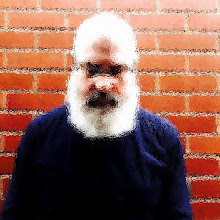Mark Leduc
Mark Leduc was a former boxer from Toronto, Canada, who won a silver medal at the 1992 Barcelona Summer Olympics.
Mark Leduc was not a hero, at least not until 1992, when he won a silver medal for Canada at the Olympics in Barcelona. Before that singular accomplishment, he was only a tough kid. To his close friends, he was a hard man who happened to be gay. By the time he was 12 years old, Leduc was certain of only two things: his sexuality and his deep love of boxing. A friend invited him along to a gym in Toronto's east end, and it didn't take long before he was hooked. His parents separated when he was 15 and Leduc went to to live on the streets.
Leduc got into trouble for robbing a jewellery store at gunpoint. He had been told by an accomplice that it was an insurance scam: the owner wanted the place turned over and hired them to make it look real. Leduc grabbed the gold and gems, passed them over, pocketed a cash fee, and was picked up by the police a few weeks later. He was sentenced to over six years in prison.
After about 18 months inside, a guard took a shine to Leduc, and tried to secure him day passes so he could train in a real gym. The first application was rejected by the warden, but Leduc was ultimately awarded 72 hours a month in the outside world. He used his 'free' time sparingly: an hour to train here, a couple of hours to train there, a few more hours for a fight. He began to acquire a smart amateur record.
The 1984 Olympics came and went while Leduc languished in prison. He was released in time for the 1988 Summer Games trials, but failed to earn a spot on the team that was to go to South Korea. Leduc decided to stick with the sport for another four years. After winning both the national championship, and the gold medal at a preliminary international meet, Leduc was on his way to Barcelona, where he won silver.
Leduc turned pro in 1992 and had limited success. He retired in 1993.
 Leduc came out as a gay man in 1994 in the TV documentary For the Love of the Game and attended Toronto’s Pride parade in 1999 as grand marshal (with Savoy Howe).
Leduc came out as a gay man in 1994 in the TV documentary For the Love of the Game and attended Toronto’s Pride parade in 1999 as grand marshal (with Savoy Howe).Leduc worked for and volunteered with the Toronto People with AIDS Foundation. His final occupation was that of set-builder and construction worker in the film industry.
Leduc died on July 22, 2009 in Toronto. He had collapsed in the sauna of a local hotel, and doctors suggested that his death may have resulted from heat stroke.
Labels: Olympic Medalists, Photographers, Sportsmen










